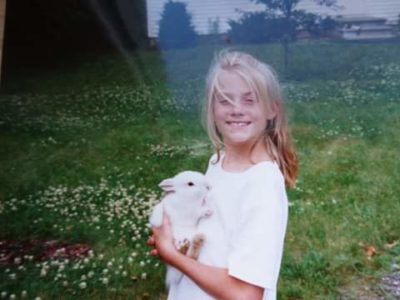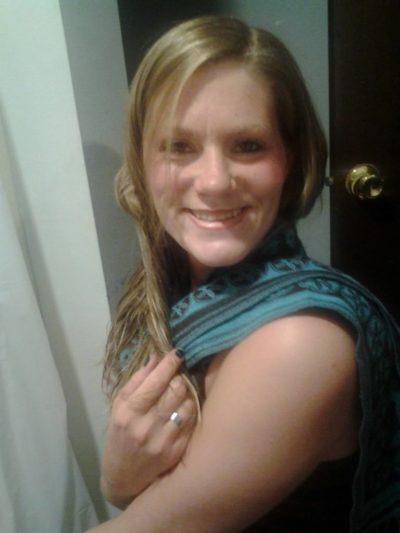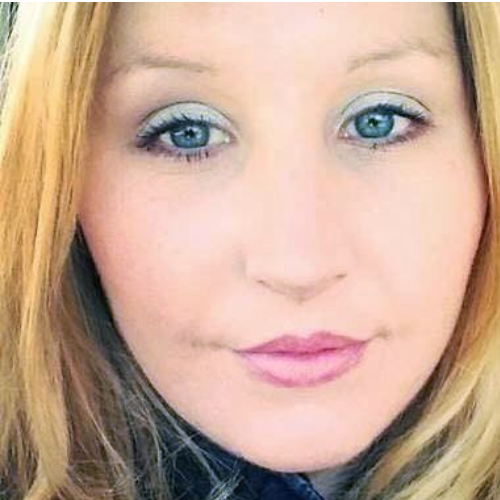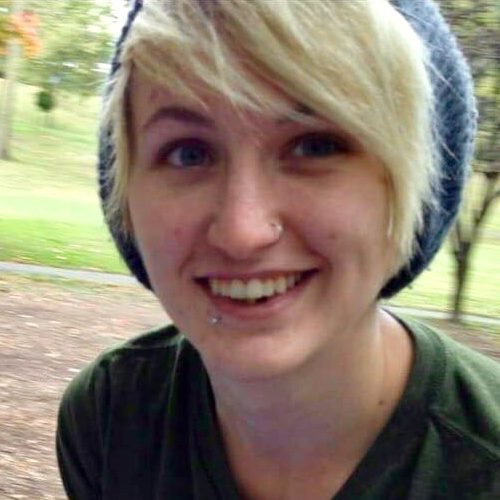Submitted by her sister, Heidi Eames
Brigette was a lover of animals

As a child, Brigette was active and loved to play. Her cup was filled by loving connections with family. She was drawn to the free spirit of animals and cared for various pets: ducks, bunnies and cats. She looked like she was glowing when she was around animals. She fell in love with horses and went to horse-riding camps in the summer. Before she died, she was taking care of a cat and made sure the cat was tended to.
She was drawn to the arts. She loved to sing songs and joined theater in middle school; she was a natural onstage and quite comedic. She spent hours drawing and coloring and making collages. Her artwork often contained blooming flowers, butterflies and fairies.
How opioid-use disorder changed her life
Brigette’s path to drugs began in her teens, after she suffered the loss of her beloved grandmother and uncle, and my elder sister and I left for college. It was hard for her to know what to do with all that psychological pain. She turned to pills she got at parties to ease her pain. These strong drugs changed her brain and robbed her of her freedom. She was held in an older man’s apartment when she was 16 without us knowing where she was. It was here that she was introduced to heroin. My mom found out where she was. The man lived two houses away from her high school, and Mom walked in and took Brigette out of the house — she was knocked out on the bed.
This was a very scary and unpredictable time of desperation for her and us as a family. We didn’t know how to help. My mother, in a desperate state, introduced her to a former addict who said he could help. He was not over his addiction, he was much older, and he was quite unwell. He was able to get many prescriptions for opiates and met my sister’s need. Her dependence on him was not without expectations, as is true for many women suffering from addiction; there comes sexual exploitation. She hastily married this older man who fueled her dependence on him and opiates.
How opioid-use disorder changed our relationship
It was like a part of her and me died when she was using drugs. It was all she cared about.
My mother did not know how to deal with her mental delusions. She was taking care of Brigette’s younger daughter, and Brigette was constantly worried that she was being harmed. This worry led to her pushing my mom down a hill and choking her when she refused to let Brigette see her daughter. My mom pressed charges, and Brigette was incarcerated for six months. Brigette had not seen her daughter in a year, and she was worse mentally when she got out. She had many hospitalizations in the last six months, and ultimately she died trying to get better.
Brigette’s fight with opioid-use disorder
She fought for 20 years. She became stable on suboxone and was free from the search for heroin, which was filled with exploitation, homelessness and incarceration. When she was recovering, she saw her kids and they had a fun time together. Despite that, however, her mental health suffered. She had multiple hospitalizations for overwhelming anxiety and psychosis.

How Brigette would want to be remembered
Brigette would want to be remembered for her generosity and kindness toward those she loved, and for her deep desire for peace. She cared about others struggling like she was with addiction or mental illness. She cherished her babies and held them close, giving them what she could: beloved names that she choose with love, Lillianna Grace and Abigail Joi. She gave them the very best start by breastfeeding them, and when she could not care for them, she kept picture shrines of them nearby. I can tell you there was not a day that the girls were not in her heart. She was always wishing the best for them.
Vivid memories of Brigette
One of the last visits she had with her youngest daughter, Abbi, was at an apple orchard and a petting zoo. She encouraged Abbi to get right in and interact with the animals, petting and loving them, sharing her love of animals. They went from animal to animal admiring, stroking and feeding them. Her deep connection to animals and her daughter radiated from her presence at that visit.
Though she seemed to be flooded with all these problems, she called me several times a week and always asked how I was. Last year, when she was incarcerated for six months, it was right at the time I was due to have my third child. She called daily from the jail, worrying about me and hoping to hear that all was OK.
Our last moments together
Our last conversation, a few days before she died, was about how she missed her children so much, particularly Abbi, whom my mother had custody of. How she longed to see her and know that she was OK and that she had a special bond with her. Brigette was found dead on July 19, 2019, alone in her apartment, slumped over her kitchen sink, several days after she died. The cause of death: sudden cardiac arrest, caused by the side effects of the multiple psychiatric medications she was prescribed — a true modern tragedy.
If I could say one thing to Brigette, it would be
I am so sorry there was not a place for you to go where you were safe.




Leave A Comment